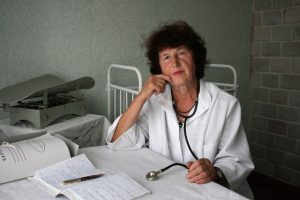New Delivery Model for Rural Care Proposed
 Emergency physicians in Michigan have proposed a new way of delivering healthcare to rural areas that the American Board of Physician Specialties® (ABPS ) finds particularly noteworthy. The new model foresees a partnership between emergency and primary care clinicians to reverse the trend of declining health for people in underserved parts of the country.
Emergency physicians in Michigan have proposed a new way of delivering healthcare to rural areas that the American Board of Physician Specialties® (ABPS ) finds particularly noteworthy. The new model foresees a partnership between emergency and primary care clinicians to reverse the trend of declining health for people in underserved parts of the country.
The proposal published online in the Annals of Emergency Medicine argues that the traditional healthcare model of serving rural population has proven ineffective, with rural residents facing higher mortality rates than urban residents for emergency medical conditions. Social, environmental, and economic factors all play significant roles. Besides being more socially and geographically isolated, rural residents are older, poorer, more affected by alcoholism and drug abuse, and engage in more high risk behaviors than their urban counterparts. Add to that the increasing hospital closures and doctor shortages in rural areas and the problem of delivering adequate medical care to rural Americans becomes acute.
To address these challenges, the proposal calls for improved coordination of care between emergency and primary care doctors. According to the plan, because many rural emergency departments already provide primary care, rural hospitals can serve as a hub for emergency care, primary care, preventive care, and social services that improve residents’ health. The model would supplement, not replace, the existing outpatient rural safety net, the paper’s authors say. Their plan envisions an emergency medicine-primary care model similar to that of Carolinas HealthCare System Anson in Wadesboro, NC, where a final hospital design has no physical walls between the emergency and primary care areas.
The ABPS recognizes the challenges of delivering healthcare, specifically emergency medicine, to rural areas. Through the Board of Certification in Emergency Medicine (BCEM), the ABPS makes it possible for primary care trained physicians with substantial and identifiable emergency medicine training to become board certified in EM. Right now, almost half of the emergency department physicians in the country are not trained or board certified in EM. While many of them are certified in family medicine or another primary care specialty, they have been practicing in hospital emergency departments for several years. Emergency departments, including those in rural communities, can stand out by seeking to hire doctors who are certified through the BCEM. Having a BCEM Diplomate on staff would serve as a testament to a hospital’s commitment to providing comprehensive emergency medical care. When you consider that any BCEM applicant must complete a minimum of five years and 7,000 hours of emergency department casework, it’s easy to see how board certification allows a physician to demonstrate the kind of emergency medicine mastery that would inspire a hospital’s confidence and patients’ trust.
To learn more about the eligibility requirements for certification in Emergency Medicine through the BCEM, click here. The BCEM is a Member Board of the ABPS, which is the official certifying body of the American Association of Physician Specialists, Inc.®






